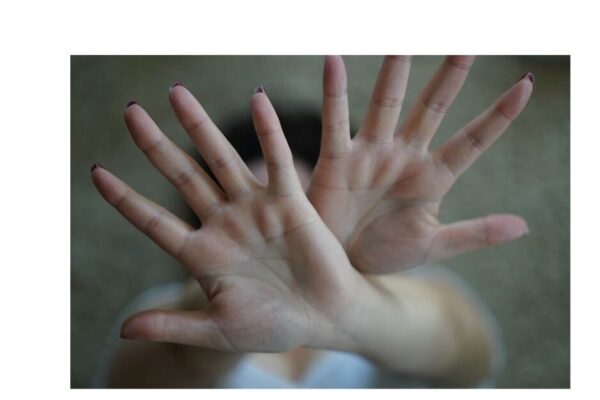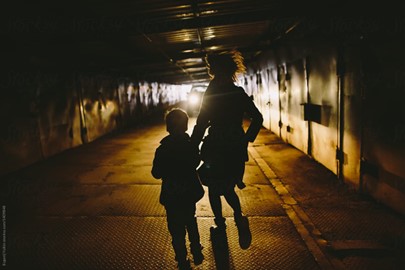Why Not Every Marriage Can (or Should) Be Saved

This website is all about saving marriages. That’s what I do, I give people the tools they need to build better marriages. Unfortunately, sometimes having the tools is not enough.
One person cannot make a relationship work. It takes two. This is a simple fact. All of the relationship advice found on this site is geared toward couples who are both willing and able to work on the marriage. Not everyone is willing to give what it takes to make a relationship work, and no matter how hard they try one partner cannot give enough to make up for the lack of effort by the other one.
If there is violence, all bets are off. You need to get out. This was a lesson I learned the hard way during my first marriage.
I tried. For eleven years I tried. Nothing I did worked. Nothing I did made my husband happy. I blamed myself and he blamed me too. The harder I tried the worse it got.
When he hit me or smashed something, it was always my fault. “Why did you make me do that?” he would scream. “Why do you have to make me so mad that I lose control?”
He was so charming when we met, so attentive. I was only 16 when we met and he swept me off my feet. I was 18 when we got married. I was too young to understand that jealousy and possessiveness are not signs of love. They are signs of a deeply insecure person.
We moved 13 times in the 11 years we were married, every time I made friends. I suffered more bruises than I can count and was treated for multiple broken bones, including my right knee which required surgery to repair. I came very close to dying from an asthma attack because he was too high to drive me to the hospital and too paranoid to allow me to call 911. He once hit me with our car. My son was in the back seat. Years later, my son was still having nightmares of seeing me go flying over the hood and windshield. He came up behind me when I was washing the dishes and put me in a choke hold. Just before I lost consciousness, he whispered in my ear “Aren’t you glad I love you? Because if I didn’t, you’d be dead by now.” He was always sorry afterwards. He would buy me flowers, apologize, and promise never to do it again.
Statistics say that a woman leaves an abusive relationship seven times before she finally escapes. I left three times. I only went back twice. One day, a friend of mine said something that woke me up like a bucket of ice water dumped over my head. She said that my son would grow up to be just like his father and my daughter would grow up to have a marriage just like mine. No way. That was not going to happen. What I couldn’t do for myself, I could do for my kids.

That’s when I made a plan. I got in touch with the local women’s shelter. I took my kids and what we could carry and we never looked back.
It wasn’t easy. My family turned their backs on me and I lost a lot of friends, but I made new ones. For every person who tried to convince me that I had to go back, there were three more cheering me on and helping me stay strong.
Domestic violence happens, even in 1st responder families. It happens in every culture, every economic bracket, every profession.
Violence against women is reported more often now than it used to be, but it’s not only men who are abusers. I have worked with men who have been beaten and abused by their wives as well as members of same sex couples, both male and female.
Male or female, rich or poor, gay or straight, the story is always the same. The names and locations are different, but it always follows the same pattern.
The solution is always the same. Leave. Make an exit plan. Especially if your partner chokes or attempts to strangle you. The odds of your partner attempting to kill you are six times higher if you are a woman who has been strangled in the past. The odds of him succeeding in killing you are seven times higher.
Document everything. Keep records. Hide them somewhere safe. Avoid using Google or Microsoft browsers when you’re looking for help because they track your activity and send you ads and information based on your search history. Brave and DuckDuckGo are good alternatives that don’t track your history.
Most important, tell someone. I know it’s hard to trust strangers, especially when the person who is supposed to love you is abusing you, but do it.
I have worked with law enforcement and firefighter spouses who have said they were afraid to ask for help because they didn’t think anyone would believe them. It’s not true. Every single abuser says that. It’s part of the common strategy. They wear you down and destroy your confidence and self-esteem. They keep you off balance and convince you that you’re crazy and that everyone else thinks you’re crazy too. They lie. It doesn’t matter if they are doctors, lawyers, firefighters, law enforcement officers, laborers, or criminals.
They lie. People will believe you. Friends, co-workers, and neighbors knew what he was doing, but as long as I was defending him there was no way for them to help me. As soon as I reached out and spoke up, there were dozens of people there waiting to offer assistance.
Since then, I have helped many others. I have charmed abusers and lied to their faces, talking circles around them while escorting their victims out the door and out of town before they knew what was happening. I have plotted and planned and encouraged. I’ve given out charging cords and pre-paid phones.
When I see the warning signs, I tell my story. I plant the seeds of hope and wait for them to take root and grow. I’m careful not to push so I don’t scare anyone away, but I’m ready when they decide to make the move.
I’m not the only one who helps. There are armies of people out there who are willing to help. They are just waiting for you to ask.
